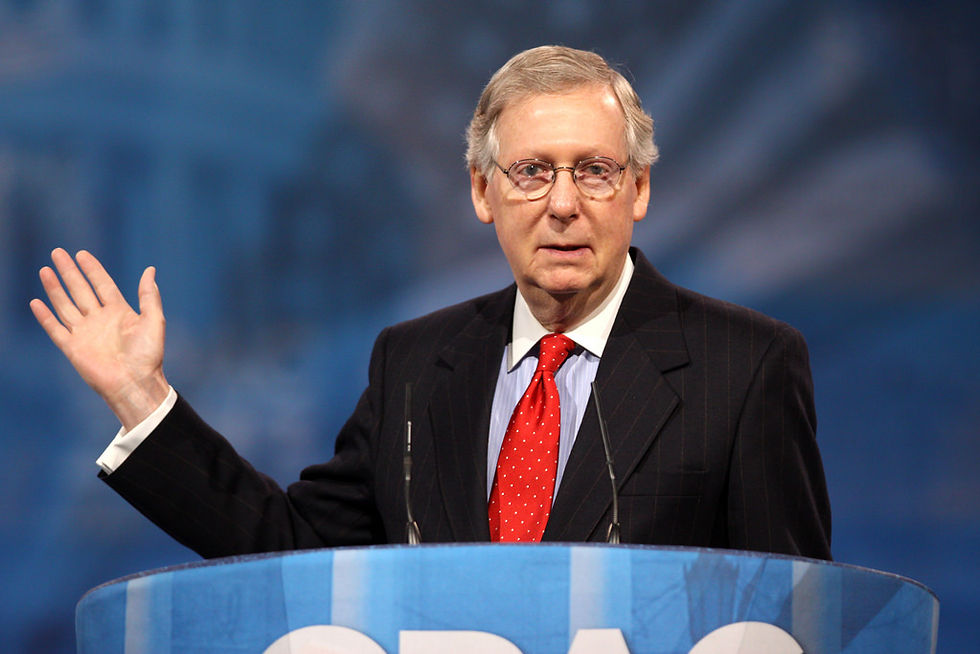
On Tuesday, Feb. 8, the day prior to the vote on Jeff Sessions’ nomination for Attorney General, Senate Majority Leader Mitch McConnell gave way to some of his greatest critics: feminists.
McConnell unintentionally aided liberals during Elizabeth Warren’s attempted repudiation of Sessions’ nomination. Warren, the liberal antithesis of McConnell, had begun reading a letter written by Coretta Scott King in 1986. The letter spoke of Session’s ill-will towards black voters while working as an attorney in Alabama.
McConnell proceeded to interrupt Warren’s speech by invoking Rule XIX, which prohibits Senators from impugning the conduct of a fellow Senator. The Senate subsequently voted in favor of McConnell and Warren was forced to take her seat and could no longer participate in the debate at hand.
McConnell’s procedural right to silence Warren is uncertain. Warren did attempt to provide evidence which would call into question Sessions’ actions and therefore effectively demean the Senator. However, the purpose of the debate itself was to discuss Sessions’ qualifications for attorney general. Warren’s invocation of Sessions’ past experience as an attorney is valid in a discussion of his capacity to adequately serve the position of attorney general.
In defence of his silencing of Warren, McConnell stated, “She was warned. She was given an explanation. Nevertheless, she persisted.” If not for this statement, McConnell’s shutdown of Warren’s speech, and her speech in question, may have gone unnoticed. Nevertheless, McConnell’s declaration has since transformed into a feminist mantra, spanning the Internet in the form of memes, articles, and commercial goods. Since making this statement, McConnell has been cited as a classic example of a privileged man attempting to assert his authority over a woman by devaluing her voice.
McConnell’s thirty years of public service in the Senate have earned him a reputation for being a stickler when it comes to preserving the sanctity of the Senate. Perhaps McConnell, outraged by Warren’s gall to admonish a fellow Senator, attempted to maintain order on the Senate floor by utilizing procedure to dutifully dismiss Warren and any sort of disorder or incivility her remarks may have caused. However, McConnell’s career reflects a disregard for women’s equality, specifically a woman’s right to reproductive healthcare, and his silencing of Warren stems from his own androcentrism. When Ted Cruz called McConnell a liar “willing to say things that he knows are false” on the Senate floor in July of 2015, McConnell did not invoke Rule XIX. Did McConnell let Cruz’s blatant criticism go unpunished because of party loyalty or because criticism is valid if it comes from a male colleague?
If anything, the Senate functioned as McConnell’s own femme fatale during Session’s nomination. McConnell’s silencing of Warren through his position as the GOP’s congressional leader actively reflect his party’s platform as informed by the President, who is commonly criticized for his own misogynistic comments.The repurposing of the McConnell’s defensive, and inherently offensive, words as a rallying cry for all feminists does not feel particularly radical.
The slogan “nasty woman,” however, sounds rather pertinent. During the final presidential debate, Donald Trump interrupted Hillary Clinton, calling her a “nasty woman.” The context of Trump’s interruption was a debate on Social Security and taxation. While discussing the Social Security Trust Fund, Clinton insinuated that Trump would inevitably attempt to sidestep increased contributions to his Social Security payroll. In response, Trump referred to Clinton as a “nasty woman,” which resulted in the mass recycling of the same degrading words by feminists into words of empowerment.
The Clinton campaign’s reiteration of Trump’s misogynistic remarks as a form of female empowerment and feminism ultimately failed to provide the momentum which would secure her election. Whereas Clinton is a symbol of the rejection of Trump and his exclusive conception of America prior to his election, Warren reflects a similar resistance following Trump’s election.
Trump’s “nasty woman” comment did not ultimately result in Clinton’s election and the breaking the infamous glass ceiling. Warren’s name, however, has frequented lists of potential Democratic presidential candidates for 2020 and the persistence she displayed in her clash with McConnell has, if anything, elevated her support among female voters. Could McConnell’s attempted silencing of Warren be the impetus Warren needs to garner the necessary support for a successful presidential candidacy in the years come? McConnell would beg to differ.
